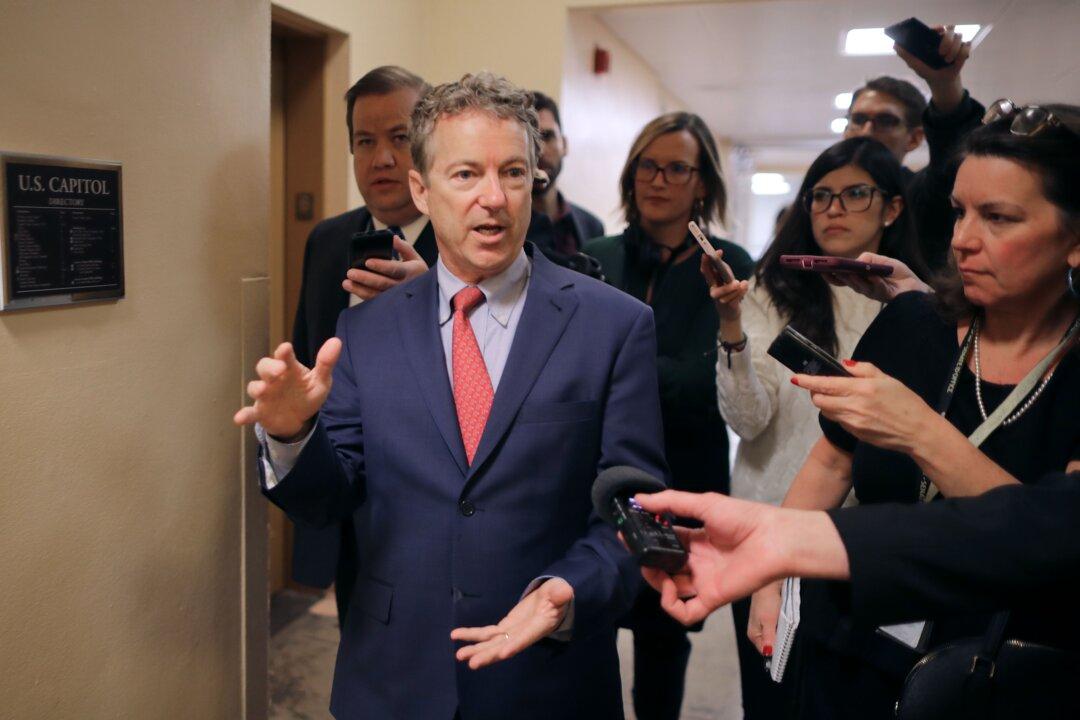Sen. Rand Paul (R-Ky.) on Nov. 25 issued a special fall edition of his annual report on waste and fraud by the federal government, including a $4.7 million grant from the National Institutes of Health (NIH) for studying the connection between drinking alcohol and going to the emergency room.
The Kentucky Republican is chairman of the Federal Spending Oversight and Emergency Management (FSO) Subcommittee of the Senate Homeland Security and Governmental Affairs Committee (HSGAC).





